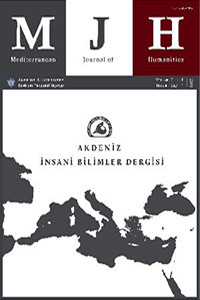Öz
This study aimed to investigate the effectiveness of cognitive strategy instruction on English reading comprehension of Iranian advanced students. A total of 60 participants took part in the present study. The participants (n=20) in one experimental group were provided with the cognitive training only condition while the participants (n=20) in the other experimental group were exposed to both a training and a verbalization requirement condition. Control group participants (n= 20) did not receive any training. Students of the experimental group in both conditions received 10 hours of cognitive strategy training in their regular lessons. The findings in this study generally supported that the consciousness-raising of the cognitive strategies had a positive impact on the reading development of Farsi-speaking English learners.
Anahtar Kelimeler
English reading comprehension cognitive strategy instruction gender
Kaynakça
- Bejarano, Y., Levine, T., Olshtain, E., & Steiner, J. (1997). The skilled use of interaction strategies: Creating a framework for improved small-group communicative interaction in the language classroom. System, 25, 203-214.
- Cook, V. (1993). Linguistics and second language acquisition. London: Macmillan.
- Dörnyei, Z., & Malderez, A. (1997). Group dynamics and foreign language teaching. System, 25, 65-81.
- Hsiao, T-Y., & Oxford, R. L. (2002). Comparing theories of language learning strategies: A confirmatory factor analysis. Modern Language Journal, 86(3), 368-383.
- Krashen, S. (1985). The input hypothesis: Issues and implications. London: Longman.
Öz
This study aimed to investigate the effectiveness of cognitive strategy instruction on English reading comprehension of Iranian advanced students. A total of 60 participants took part in the present study. The participants (n=20) in one experimental group were provided with the cognitive training only condition while the participants (n=20) in the other experimental group were exposed to both a training and a verbalization requirement condition. Control group participants (n= 20) did not receive any training. Students of the experimental group in both conditions received 10 hours of cognitive strategy training in their regular lessons. The findings in this study generally supported that the consciousness-raising of the cognitive strategies had a positive impact on the reading development of Farsi-speaking English learners.
Anahtar Kelimeler
English reading comprehension cognitive strategy instruction advanced students gender
Kaynakça
- Bejarano, Y., Levine, T., Olshtain, E., & Steiner, J. (1997). The skilled use of interaction strategies: Creating a framework for improved small-group communicative interaction in the language classroom. System, 25, 203-214.
- Cook, V. (1993). Linguistics and second language acquisition. London: Macmillan.
- Dörnyei, Z., & Malderez, A. (1997). Group dynamics and foreign language teaching. System, 25, 65-81.
- Hsiao, T-Y., & Oxford, R. L. (2002). Comparing theories of language learning strategies: A confirmatory factor analysis. Modern Language Journal, 86(3), 368-383.
- Krashen, S. (1985). The input hypothesis: Issues and implications. London: Longman.
Ayrıntılar
| Birincil Dil | İngilizce |
|---|---|
| Konular | Çeviri ve Yorum Çalışmaları |
| Bölüm | Araştırma Makaleleri |
| Yazarlar | |
| Yayımlanma Tarihi | 30 Haziran 2011 |
| Yayımlandığı Sayı | Yıl 2011 Cilt: 1 Sayı: 1 |
| Adres: Akdeniz İnsani Bilimler Dergisi Akdeniz Üniversitesi, Edebiyat Fakültesi 07058 Kampüs, Antalya / TÜRKİYE | E-Posta: mjh@akdeniz.edu.tr |


